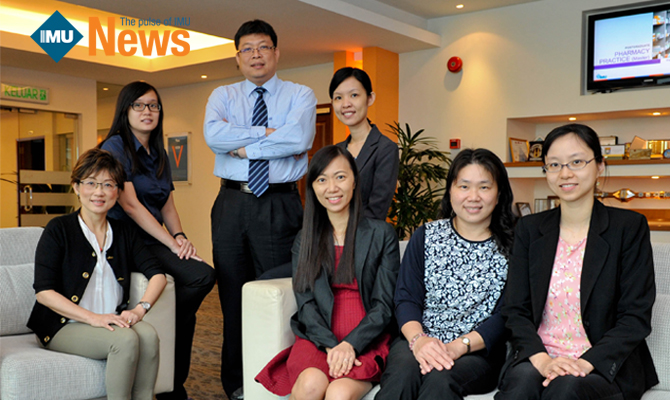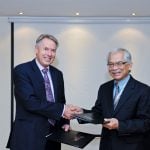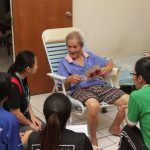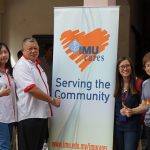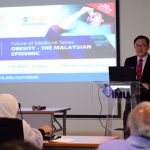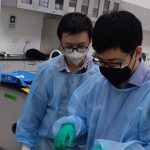Seven IMU faculty have successfully secured research grants under the latest cycle of the Fundamental Research Grants Scheme (FRGS) awarded by the Ministry of Higher Education. Under this grant scheme, a total of RM 661,000 has been allocated for the approved projects. The successful recipients include Prof Leong Chee Onn from the School of Pharmacy, Prof Khoo Suan Phaik from the School of Dentistry, Dr Elaine Chan Wan Ling from the Institute for Research, Development, and Innovation (IRDI), Dr Wong Shew Fung from the School of Medicine, as well as Dr Wong Chiew Yen, Dr Koh Rhun Yian, and Dr Lim Chooi Ling from the School of Health Sciences. 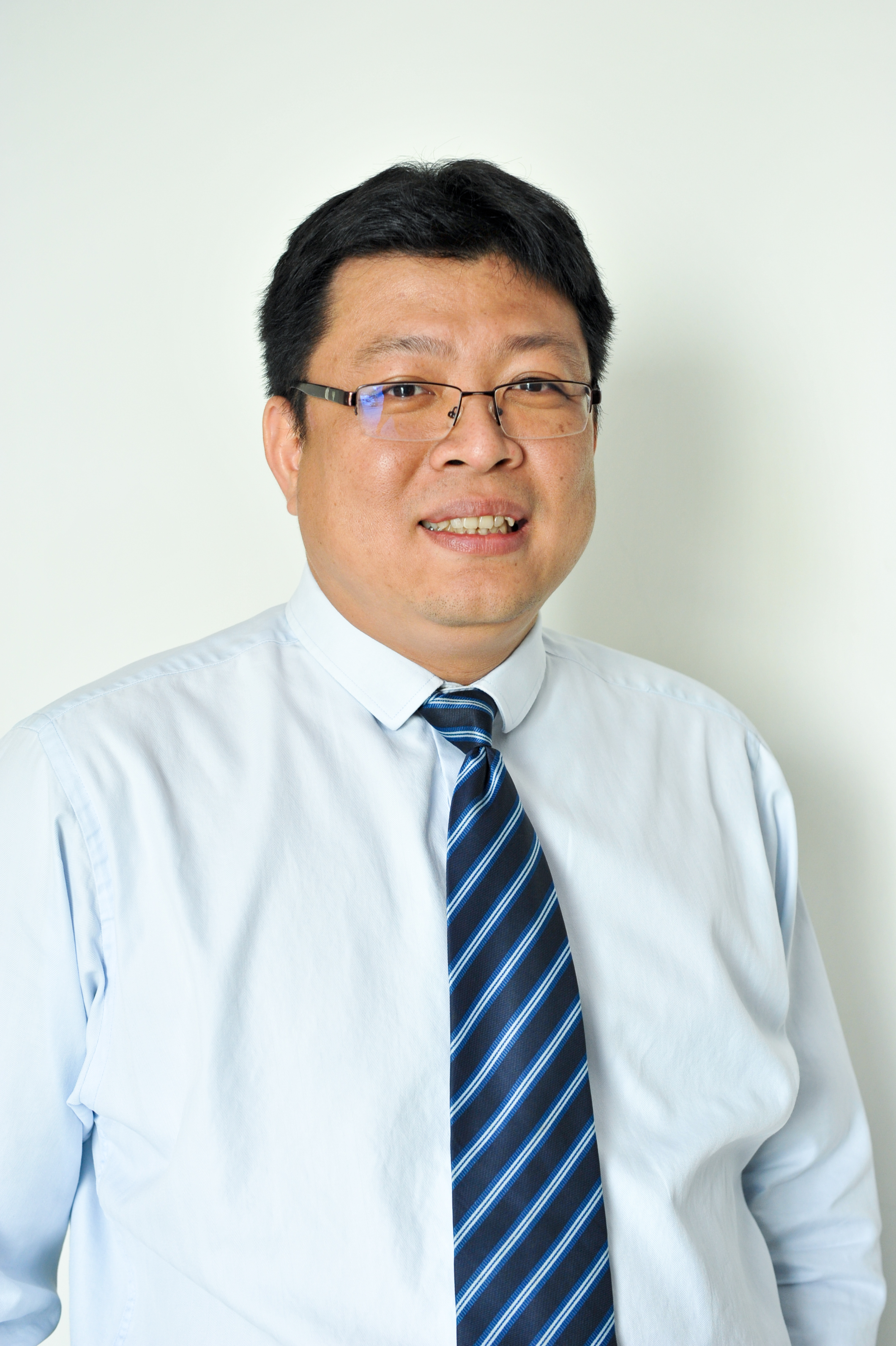 Prof Leong Chee Onn will be working on his project titled Functional Roles of Sphingosine Kinase 1 (SPHK1) in Human Breast Cancer Stem Cells. Prof Leong and his team had recently identified sphingosine kinase 1 (SPHK1) which is an enzyme as a potential target regulating the survival of breast cancer stem cells (CSCs). Nevertheless, the molecular mechanisms of SPHK1 in breast CSCs are not well understood. The main objective of Prof Leong’s project is to determine the role of SPHK1 and its mechanisms in mediating the survival of breast CSCs.
Prof Leong Chee Onn will be working on his project titled Functional Roles of Sphingosine Kinase 1 (SPHK1) in Human Breast Cancer Stem Cells. Prof Leong and his team had recently identified sphingosine kinase 1 (SPHK1) which is an enzyme as a potential target regulating the survival of breast cancer stem cells (CSCs). Nevertheless, the molecular mechanisms of SPHK1 in breast CSCs are not well understood. The main objective of Prof Leong’s project is to determine the role of SPHK1 and its mechanisms in mediating the survival of breast CSCs. 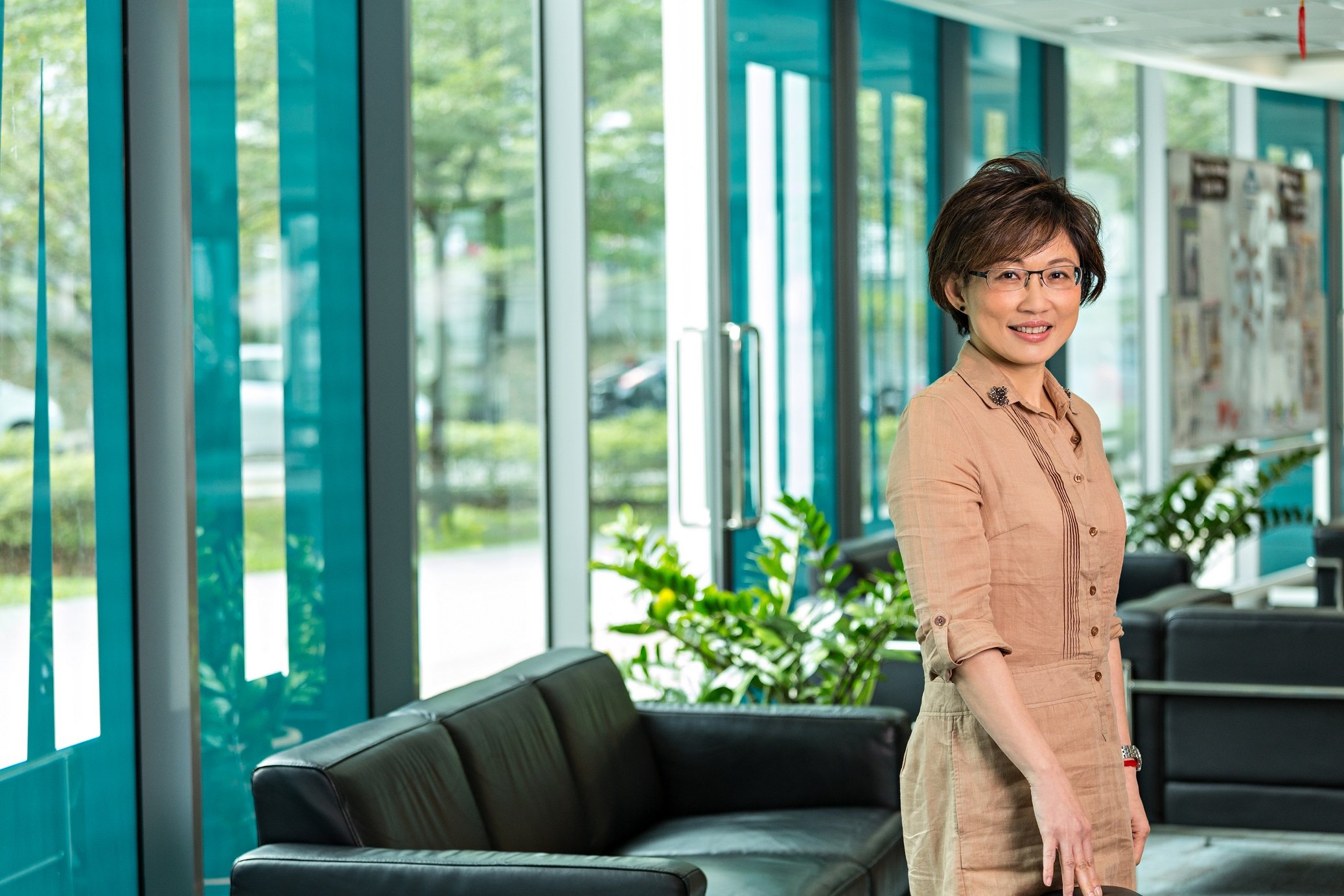 Prof Khoo Suan Phaik and her team will be working on the project titled The Effects of Lipopolysaccharide-induced Local Inflammation and Hyperglycaemic States on Mesenchymal Stem Cells of the Periodontal Tissues. Studies have found that mesenchymal stem cells (MSC) derived from various dental sources promote regeneration of the tooth supporting structures (periondontal tissues) in periodontitis (inflammation of periondontal tissues). However, there is recent evidence that local inflammation caused by the presence of microorganisms and systemic inflammation triggered by hyperglycemic states (high blood sugar level) such as those in diabetes mellitus will inhibit the growth of MSC of the periodontal tissues. This has therefore triggered the interest in Prof Khoo to investigate the effects of local and systemic inflammation on the MSC residing in the periodontium. Meanwhile, Dr Elaine Chan Wan Ling is looking into Alzheimer’s disease (AD) from the perspective of protection of injury in nerve cells (neuroprotection). One alternative strategy for neuroprotection is the inhibition of neuronal pyroptosis (highly inflammatory programmed cell death). Beta amyloid (Aβ) (a protein) can reportedly activate NLRP1 inflammasome (a multiprotein which can activate the inflammatory process) and subsequently result in neuronal pyroptosis. However, little is known of the mechanisms by which beta amyloid (Aβ) induces NLRP1 inflammasome-mediated neuronal pyroptosis. Therefore, this study aims to investigate the mechanisms by which Aβ induces NLRP1 inflammasome activation and pyroptosis in neuronal cells. Dr Wong Shew Fung will be working on the influence of Wolbachia on susceptibility to insecticide in Aedes mosquitoes and its underlying mechanism of action. No doubt that insecticides have been massively used to control the breeding of the larvae and adult mosquitoes. However, it has resulted in increasing resistance to insecticide. High density of Wolbachia (a species of bacteria) was reportedly found in insecticide resistant mosquitoes, Culex pipiens. The mechanism of how these adaptations result in the development of the insecticide resistance is not fully understood or delineated yet. Dr Wong Shew Fung will be focusing on the molecular mechanism responsible for the development of insecticide resistance in order to enable effective management of the spread of resistant mosquito populations.
Prof Khoo Suan Phaik and her team will be working on the project titled The Effects of Lipopolysaccharide-induced Local Inflammation and Hyperglycaemic States on Mesenchymal Stem Cells of the Periodontal Tissues. Studies have found that mesenchymal stem cells (MSC) derived from various dental sources promote regeneration of the tooth supporting structures (periondontal tissues) in periodontitis (inflammation of periondontal tissues). However, there is recent evidence that local inflammation caused by the presence of microorganisms and systemic inflammation triggered by hyperglycemic states (high blood sugar level) such as those in diabetes mellitus will inhibit the growth of MSC of the periodontal tissues. This has therefore triggered the interest in Prof Khoo to investigate the effects of local and systemic inflammation on the MSC residing in the periodontium. Meanwhile, Dr Elaine Chan Wan Ling is looking into Alzheimer’s disease (AD) from the perspective of protection of injury in nerve cells (neuroprotection). One alternative strategy for neuroprotection is the inhibition of neuronal pyroptosis (highly inflammatory programmed cell death). Beta amyloid (Aβ) (a protein) can reportedly activate NLRP1 inflammasome (a multiprotein which can activate the inflammatory process) and subsequently result in neuronal pyroptosis. However, little is known of the mechanisms by which beta amyloid (Aβ) induces NLRP1 inflammasome-mediated neuronal pyroptosis. Therefore, this study aims to investigate the mechanisms by which Aβ induces NLRP1 inflammasome activation and pyroptosis in neuronal cells. Dr Wong Shew Fung will be working on the influence of Wolbachia on susceptibility to insecticide in Aedes mosquitoes and its underlying mechanism of action. No doubt that insecticides have been massively used to control the breeding of the larvae and adult mosquitoes. However, it has resulted in increasing resistance to insecticide. High density of Wolbachia (a species of bacteria) was reportedly found in insecticide resistant mosquitoes, Culex pipiens. The mechanism of how these adaptations result in the development of the insecticide resistance is not fully understood or delineated yet. Dr Wong Shew Fung will be focusing on the molecular mechanism responsible for the development of insecticide resistance in order to enable effective management of the spread of resistant mosquito populations.  On the other hand, Dr Wong Chew Yen is looking into the response of microalgae to repeated exposure to glufosinate ammonium which is a commonly used herbicide at different temperatures. Usage of herbicide like glufosinate ammonium may pose profound risk to the public health due to bioaccumulation of the toxicant in microalgae. Dr Wong Chew Yen remarked that increased global temperature will affect the toxicity of pesticide in microalgae. The question is, how do microalgae respond to pesticide toxicity at increased temperature? Dr Wong Chew Yen proposed to investigate the response of microalgae isolated from Malaysia to repeated exposure to glufosinate ammonium at increased temperature. The information is fundamentally important for the understanding of response mechanisms and adaptation of algae to pesticide toxicity under temperature stress. Dr Koh Rhun Yian will be working on her project titled Roles of Receptor Interacting Protein Kinase 1 in beta-Amyloid Deposition Mediated through Autophagy in Alzheimer’s Disease. She remarked that an amino acid called β-Amyloid (Aβ) plague is the main cause in the AD pathology. Recently, receptor interacting protein kinase 1 (RIPK1) has been identified as a key component in the synthesis of Aβ. On the other hand, it was proposed that the accumulated Aβ is removed by a self-eating process within the cell called autophagy. However, the exact mechanisms underlying the processes have yet to be deciphered. Thus, Dr Koh aims to elucidate the mechanisms of RIPK1 in AD and involvement of autophagy in the clearance of Aβ plague. The information is fundamental for the understanding of the pathogenesis of AD and development of new treatment. Last but not least, Dr Lim Chooi Ling has secured the grant based on her project titled Regulation of Cancer Cell Epithelial-Mesenchymal Plasticity (EMP) by p53 Gain-of-function Mutations. The focus area in this project is how p53, a tumour protein affects the ability of tumour cells to self-renew and differentiate into different cell types (“stemness”) and whether the stem-like cells will propagate cancer. Dr Lim is to look into the underlying mechanisms and the findings from the study may unveil novel targets for mitigating cancer characteristics.
On the other hand, Dr Wong Chew Yen is looking into the response of microalgae to repeated exposure to glufosinate ammonium which is a commonly used herbicide at different temperatures. Usage of herbicide like glufosinate ammonium may pose profound risk to the public health due to bioaccumulation of the toxicant in microalgae. Dr Wong Chew Yen remarked that increased global temperature will affect the toxicity of pesticide in microalgae. The question is, how do microalgae respond to pesticide toxicity at increased temperature? Dr Wong Chew Yen proposed to investigate the response of microalgae isolated from Malaysia to repeated exposure to glufosinate ammonium at increased temperature. The information is fundamentally important for the understanding of response mechanisms and adaptation of algae to pesticide toxicity under temperature stress. Dr Koh Rhun Yian will be working on her project titled Roles of Receptor Interacting Protein Kinase 1 in beta-Amyloid Deposition Mediated through Autophagy in Alzheimer’s Disease. She remarked that an amino acid called β-Amyloid (Aβ) plague is the main cause in the AD pathology. Recently, receptor interacting protein kinase 1 (RIPK1) has been identified as a key component in the synthesis of Aβ. On the other hand, it was proposed that the accumulated Aβ is removed by a self-eating process within the cell called autophagy. However, the exact mechanisms underlying the processes have yet to be deciphered. Thus, Dr Koh aims to elucidate the mechanisms of RIPK1 in AD and involvement of autophagy in the clearance of Aβ plague. The information is fundamental for the understanding of the pathogenesis of AD and development of new treatment. Last but not least, Dr Lim Chooi Ling has secured the grant based on her project titled Regulation of Cancer Cell Epithelial-Mesenchymal Plasticity (EMP) by p53 Gain-of-function Mutations. The focus area in this project is how p53, a tumour protein affects the ability of tumour cells to self-renew and differentiate into different cell types (“stemness”) and whether the stem-like cells will propagate cancer. Dr Lim is to look into the underlying mechanisms and the findings from the study may unveil novel targets for mitigating cancer characteristics.
Congratulations to all the recipients of FRGS grants this year!




